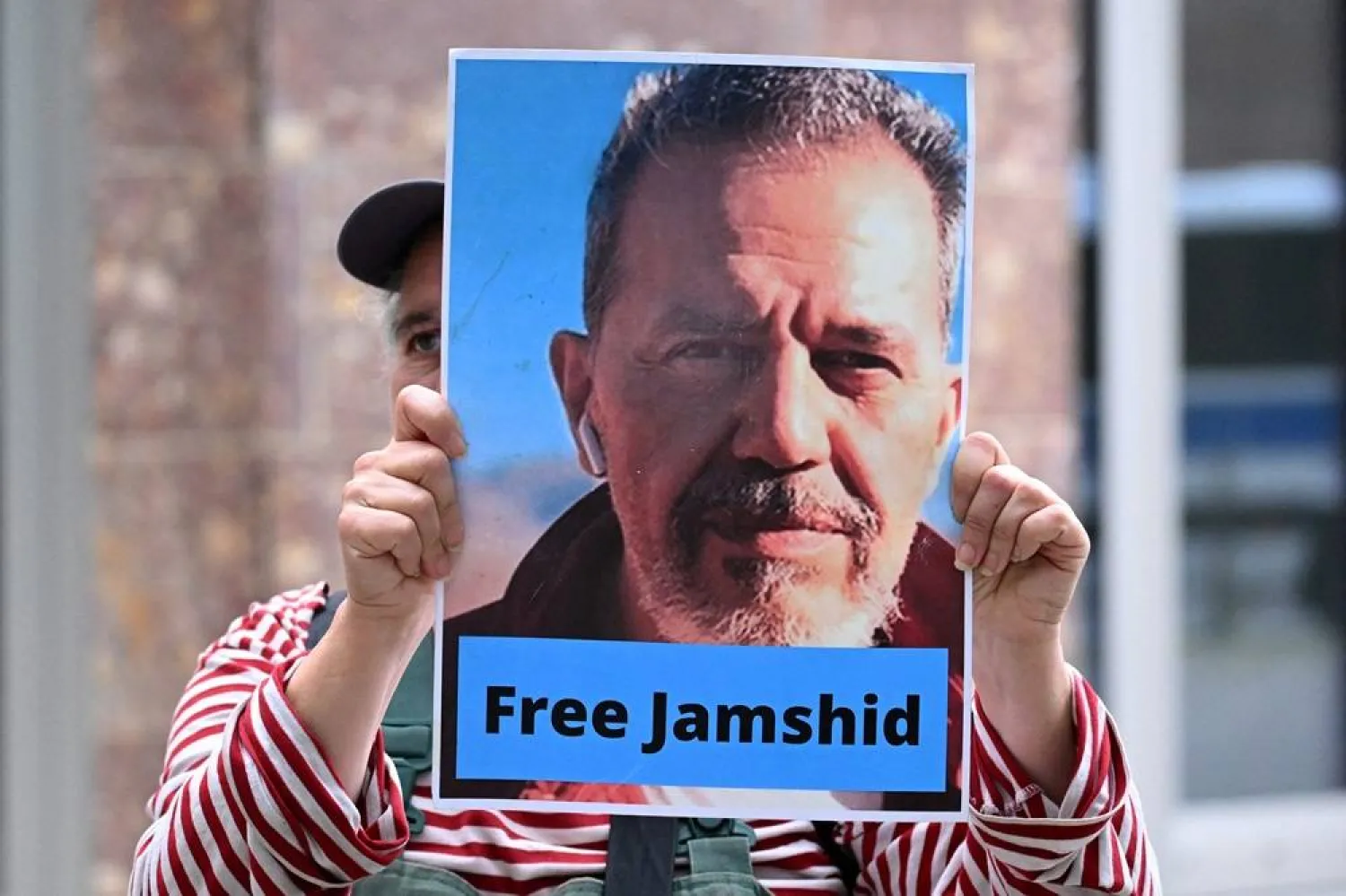Germany and the European Union on Tuesday strongly condemned Iran's execution of a 69-year-old German-Iranian dissident after years behind bars and warned they were considering retaliatory measures.
Chancellor Olaf Scholz called Jamshid Sharmahd's execution on Monday a "scandal" and Foreign Minister Annalena Baerbock warned Iran's "inhumane regime" of "serious consequences".
Berlin summoned Iran's charge d'affaires to "convey its strong protest against the actions of the Iranian regime". The German ambassador in Tehran also protested to the Iranian foreign ministry and was then recalled to Berlin for consultations.
Berlin "reserved the right to take further measures", the foreign ministry said.
The EU's top diplomat Josep Borrell said the EU condemned Sharmahd's "killing in the strongest possible terms" and that the bloc was also "considering measures in response".
Sharmahd, a German citizen of Iranian descent and a US resident, was a trained software engineer who had worked and written for an Iranian opposition group's website based abroad that strongly criticized the Iranian leadership.
He was seized by Iranian authorities in 2020 while travelling through the United Arab Emirates, according to his family.
Iran accused him of having played a role in a deadly 2008 mosque bombing. He was sentenced to death in February 2023 for the capital offence of "corruption on Earth".
The Iranian judiciary's Mizan website said on Monday that "the death sentence of Jamshid Sharmahd... was carried out this morning".
His family have always vehemently protested his innocence.
Sharmahd's daughter Gazelle said on X she was waiting for the German and US governments to provide "concrete proof" that her father had been killed.
If so, she said, his body should be brought home "immediately" and the Iranian government should face "severe punishment".
- 'Show trial' -
Rights group Amnesty International said Sharmahd's execution "is the cruel end of a process that can only be described as a show trial".
"These actions show once again that the systematic abuse of fundamental human rights is anchored in the workings of the Iranian judicial system," the group's Germany chapter said in a statement.
It called on Berlin to issue "arrest warrants against all Iranian officials who participated in the crime against Jamshid Sharmahd".
Baerbock said Monday that the case "underlines the fact that no one is safe under the new government either," referring to President Masoud Pezeshkian, who was inaugurated in July.
Iran carries out the second highest number of executions worldwide per year after China, according to Amnesty International.
At least 627 people have been executed this year by Iran, according to Norway-based NGO Iran Human Rights. Rights groups accuse the authorities of using capital punishment as a tool to instill fear throughout society.
Several other Europeans are held in Iran, including at least three French citizens.
The director of Iran Human Rights, Mahmood Amiry-Moghaddam, called Sharmahd's execution "a case of extrajudicial killing of a hostage aimed at covering up the recent failures of the hostage-takers of" Iran.









